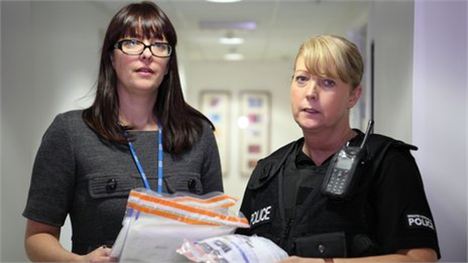FOR the first time ever St Mary's, the UK's leading Sexual Assault Referral Centre based in Manchester, has opened their doors to allow filming to take place for a BBC One documentary on the subject of rape.
"One of the main reasons for taking part in the documentary was to help explode some of the myths and stereotypes that exist around rape including the prevalence of stranger rape."
The one-hour documentary, ‘The Unspeakable Crime: Rape’ to be shown on BBC One on Tuesday 4 June at 10.35pm, will reveal shocking statistics about the culture of rape in the UK today.
Gold Star Productions was granted access to the centre and over the course of a year the production company followed the St Mary's team as they supported victims of rape.
St Mary's was the first of the UK's 46 Sexual Assault Referral Centres and it covers the Greater Manchester and Cheshire area. It is here, to the dedicated, all-female team of doctors, crisis workers and counsellors, that the police bring people who say they've been raped to conduct a forensic examination obtain psychological support or practical assistance.
Every six minutes someone is raped in Britain with 13 per cent of recorded rape victims being male. In 2012 1,209 people came to St Mary's saying they'd experienced sexual violence. Through police investigations and the subsequent trials, the staff of St Mary's support the victims of this prevalent crime.
In 2012 Greater Manchester Police started a dedicated Serious Sexual Offences Unit, bringing together over 70 detectives to investigate rape cases. The decision as to whether a rape case gets to court is made by the Crown Prosecution Service. In 2012 the Crown Prosecution Service reviewed nearly 7,000 rape cases; less than half went to trial. Thirty-eight per cent of rape trials end with a not guilty verdict and only 3 per cent of rape reports are later classified as malicious.
St Mary's has been open for over 26 years; the youngest case they have seen at St Mary's was three weeks old, and the eldest a 96-year-old. In 2012 422 of the cases seen in the centre were children, with an almost even split between 13 to 18-year-olds and those under 13-years-old.
The perception is that stranger rape is the most common relationship to the perpetrator but it is estimated that 90 per cent of rape victims know their attacker.
Dr Catherine White, the Clinical Director for the centre said: "The stranger rapes in the alleyway are really quite rare. In the vast majority of the cases that we see people do know their attacker whether it's partner, ex-partner or colleague.
"Where we see children, particularly young children, it is even more likely to be somebody they know. In many instances, it will be somebody that they know, somebody that they trust.
"One of the main reasons for taking part in the documentary was to help explode some of the myths and stereotypes that exist around rape including the prevalence of stranger rape."
The observational documentary follows the story of two women in particular, Kellie who had known and trusted her attacker for over a decade and Juliet who was attacked by a stranger on New Year's Eve.
Juliet said: "I want all victims, regardless of gender, sexual orientation, age and social background to know that they do not have to suffer in silence. They will be believed and treated with the utmost respect, understanding and empathy by all the organisations dealing with sexual crime against them.
"It doesn't matter what type of rape or sexual assault it is; stranger rape, date rape, spouse, boyfriend, colleague, relative, friend or ex-partner, it is understood that they are all as catastrophic as each other and have a huge impact on the victim and everyone connected to the victim. Get help...don't feel isolated. You don't have to suffer in silence."
For more information about the BBC One documentary, The Unspeakable Crime: Rape, visit the BBC website.




